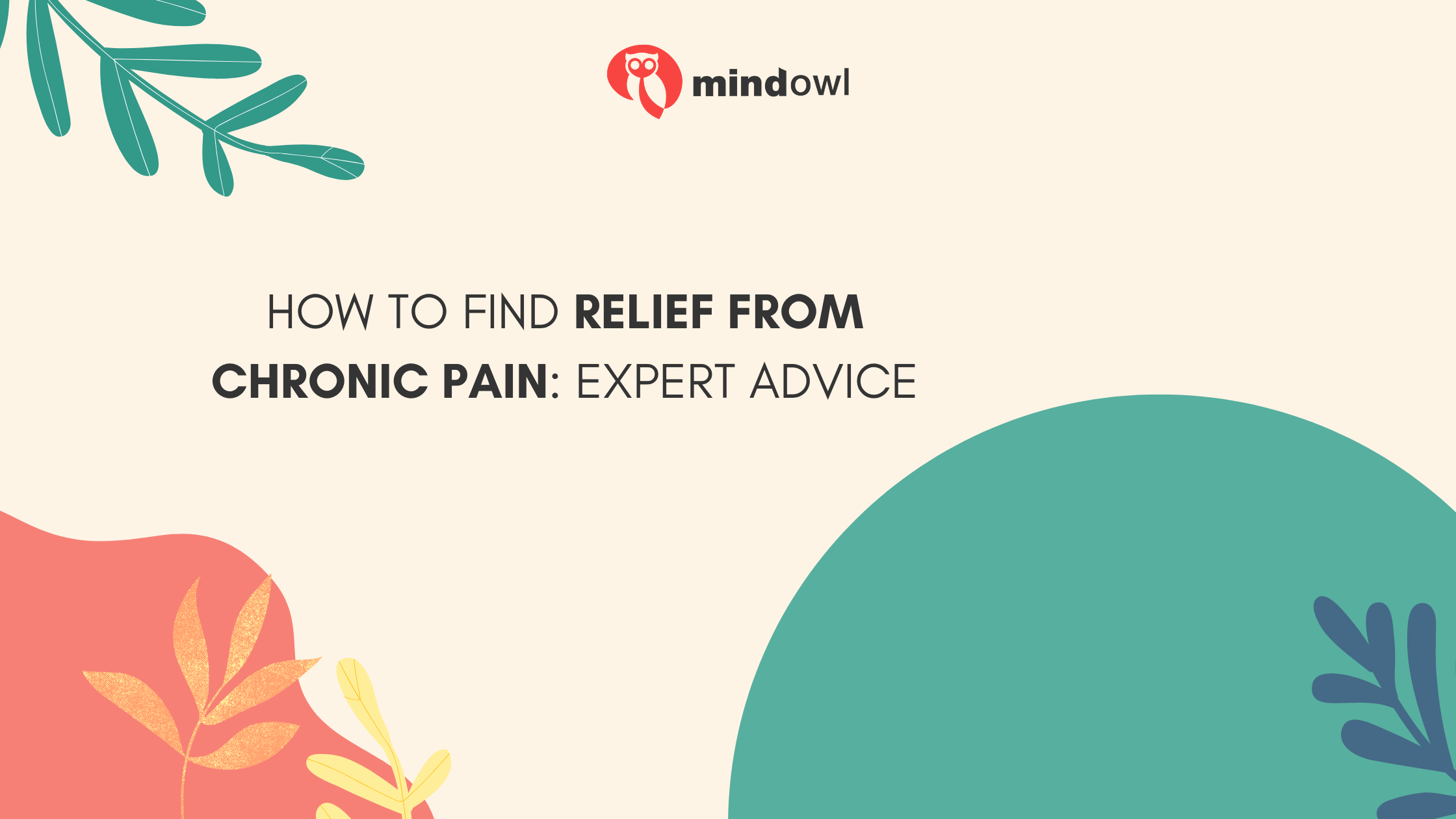Living with chronic pain can feel overwhelming. Whether it’s back, joint, or muscle pain, it can affect every aspect of your life. Many people struggle daily, searching for effective solutions to alleviate their discomfort. This blog post aims to provide expert advice on how to find relief from chronic pain. We’ll explore various methods, from lifestyle changes to professional treatments, to help you regain control and improve your quality of life.

Understanding Chronic Pain
Chronic pain is defined as pain that lasts for more than three months. Unlike acute pain, which is a direct response to injury and subsides as healing occurs, chronic pain persists and can be challenging to manage. It often develops after an injury, surgery, or due to long-term health conditions like arthritis.
Chronic pain can stem from various sources. Some common causes include:
Arthritis: Inflammation of the joints can lead to persistent pain.
Fibromyalgia: This condition causes widespread pain and tenderness in muscles and soft tissues.
Back Injuries: Herniated discs, spinal stenosis, and other back issues can result in ongoing pain.
Understanding the root cause of your pain is crucial for finding effective treatment.
The Impact of Chronic Pain
The effects of chronic pain go beyond physical discomfort. It can lead to:
Emotional Distress: Anxiety and depression are common among those living with chronic pain.
Sleep Disruptions: Pain can interfere with sleep, leading to fatigue and decreased overall well-being. Check out these pain relief products and similar options to find effective solutions for managing discomfort and improving rest. Addressing pain properly can enhance daily functioning and overall quality of life.
Reduced Mobility: Chronic pain often limits physical activity, impacting daily life and independence.
Lifestyle Changes for Pain Management
While it may seem counterintuitive, staying active is one of the best ways to start managing chronic back pain. Regular exercise helps:
Strengthen Muscles: Strong muscles support joints and reduce strain.
Improve Flexibility: Stretching exercises can increase the range of motion and decrease stiffness.
Release Endorphins: Physical activity triggers the release of endorphins, which are natural painkillers.
Reclaim your active lifestyle by gradually incorporating movement into your daily routine. Even small steps, like short walks or gentle stretching, can help in managing pain and improving mobility.
Consult with a healthcare provider before starting any new exercise regimen to ensure it’s safe for your condition.
Diet plays a significant role in managing chronic pain. Consider incorporating:
Anti-inflammatory Foods: Foods rich in omega-3 fatty acids, like salmon and flaxseeds, can reduce inflammation.
Fruits and Vegetables: These are packed with antioxidants, which help combat inflammation.
Whole Grains: Opt for whole grains over refined grains to maintain steady energy levels and reduce inflammation.
Eating a balanced diet can help manage weight, which is also crucial for reducing pain.
Stress can exacerbate chronic pain. Techniques to reduce stress include:
Mindfulness Meditation: Practicing mindfulness can help you focus on the present moment and reduce stress.
Deep Breathing Exercises: These can calm your mind and relax your body.
Yoga: Combining physical movement with relaxation techniques, yoga can improve both physical and mental health.
Incorporating these practices into your daily routine can help manage pain more effectively.
Alternative Therapies
Acupuncture
Acupuncture involves inserting thin needles into specific points on the body. It can:
Relieve Pain: By stimulating nerves and muscles, acupuncture can alleviate pain.
Improve Function: Regular sessions can enhance mobility and overall well-being.
Reduce Stress: Many people find acupuncture sessions relaxing, which can help with stress-induced pain.
Chiropractic Care
Chiropractors use hands-on spinal manipulation to align the body’s musculoskeletal structure. Benefits include:
Pain Relief: Adjustments can alleviate pain in the back, neck, and joints.
Improved Function: Chiropractic care can enhance the body’s ability to heal itself.
Non-invasive Treatment: It’s a drug-free approach to pain management.
Massage Therapy
Massage therapy involves manipulating the body’s soft tissues. It can:
Reduce Muscle Tension: Massaging tight muscles can relieve pain and improve circulation.
Promote Relaxation: Massage can reduce stress and anxiety.
Enhance Sleep: Improved relaxation can lead to better sleep quality.
Consider Getting Professional Help
Sometimes, managing chronic pain requires professional intervention. Considering options like The Pain Relief Center and other pain management clinics can provide access to a team of experts who can help create an individualized treatment plan. These professionals may suggest a combination of therapies, including physical therapy, medication, and more.
Medications and Pain Management
Over-the-Counter Medications
For mild to moderate pain, over-the-counter (OTC) medications can be effective. Options include:
NSAIDs: Nonsteroidal anti-inflammatory drugs, like ibuprofen, can reduce inflammation and alleviate pain.
Acetaminophen: This can help manage pain without reducing inflammation.
Prescription Medications
For more severe pain, prescription medications may be necessary. These include:
Opioids: These are strong pain relievers but should be used with caution due to the risk of addiction.
Antidepressants: Some antidepressants can help manage chronic pain by affecting brain chemicals related to pain perception.
Finding relief from chronic pain is a multifaceted process that involves lifestyle changes, alternative therapies, professional help, and mental health support. By exploring various methods and seeking expert advice, you can manage your pain more effectively and improve your quality of life.
MindOwl Founder – My own struggles in life have led me to this path of understanding the human condition. I graduated with a bachelor’s degree in philosophy before completing a master’s degree in psychology at Regent’s University London. I then completed a postgraduate diploma in philosophical counselling before being trained in ACT (Acceptance and commitment therapy).
I’ve spent the last eight years studying the encounter of meditative practices with modern psychology.

